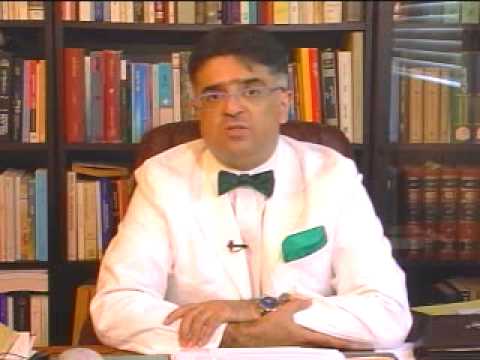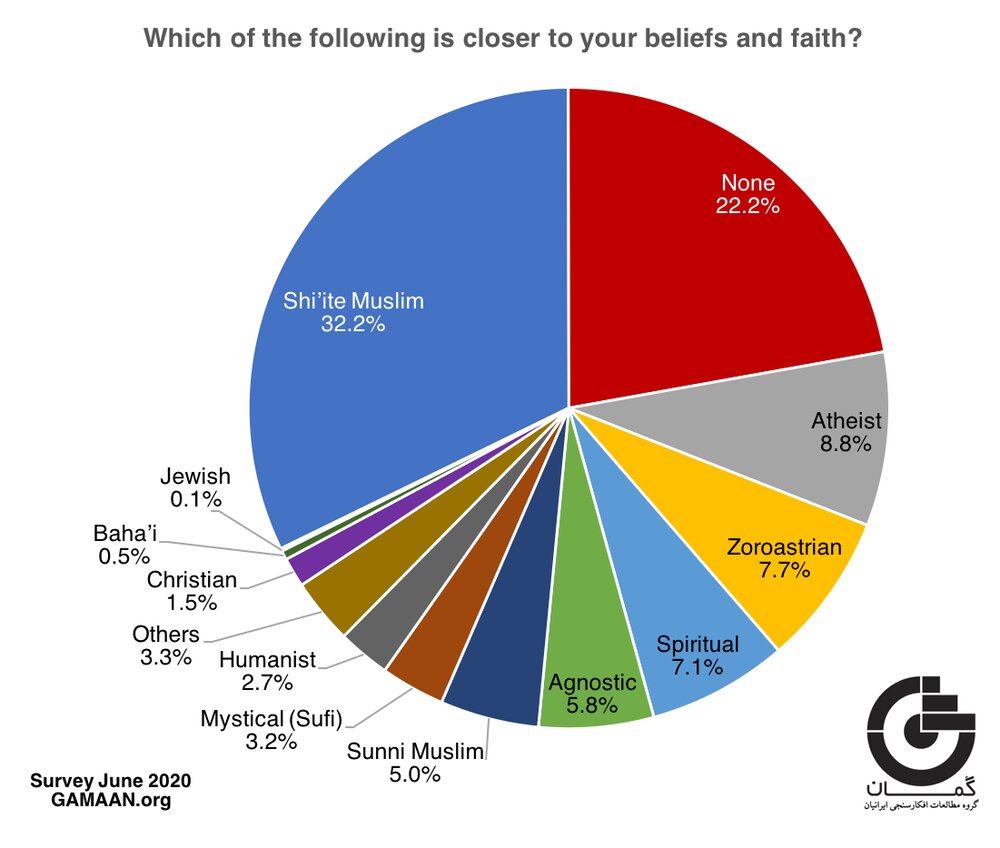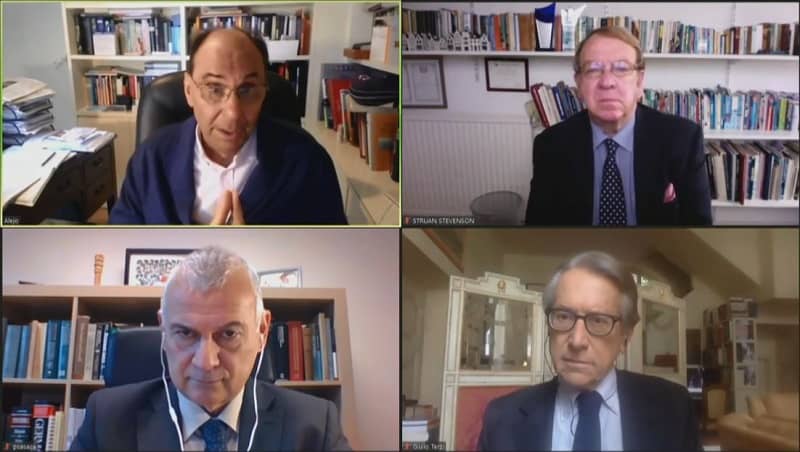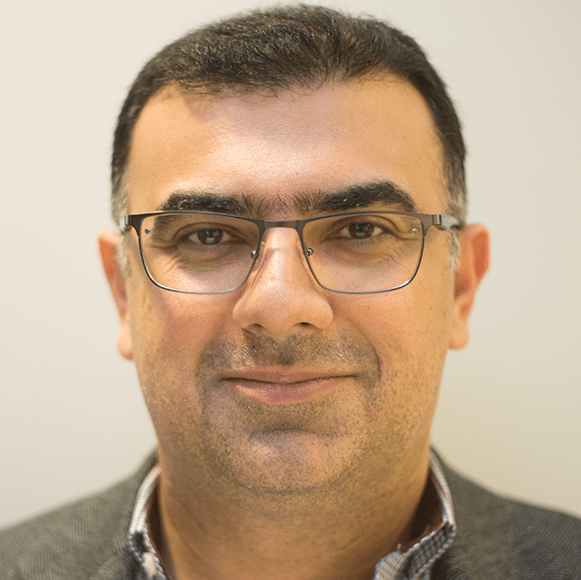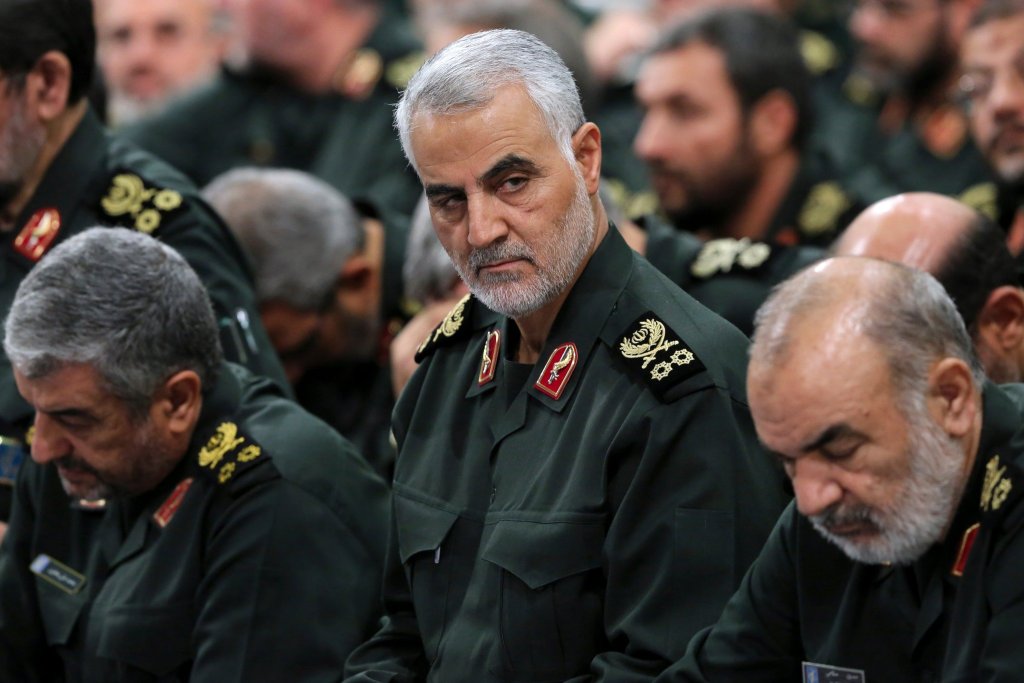جمشید اسدی
اقتصاد ایران از پیروزی انقلاب اسلامی تا به امروز، چه بی تحریم و چه با تحریم، نابسامان و درهم شکسته است. نظام ولایی نه تنها شرایط مناسبی برای کسب و کار تولید ایجاد نکرد، بلکه با پر وبال دادن به رانت خواران و بنگاه های حکومتی آن چه را هم که بود از میان برد. در همین نظام ولایی بود که بیشتر بنگاه های بزرگ ملی پیش از انقلاب از میان رفت و بزرگ ترین درآمد نفتی تاریخ ایران بی هیچ دست آوردی از دست برفت.
فضای نامناسب اقتصادی – رانتی ناشی از تندروی و ندانم کاری این یا آن رئیس جمهور نیست. هیچ دولتی در نظام ولایی اقتصاد ایران را از باج دهی به رانت خواران حکومتی نرهاند و شرایط را برای کسب و کار و پیشه وری جامعه مدنی آماده نکرد. همه گزارش های استوار جهانی، همچون آزادی اقتصادی جهان [۱]، شاخص آزادی اقتصادی [۲]، و کسب و کار کردن [۳] اشاره به فضای نابسامان نظام برای فعالیت اقتصادی شهروندان ایران دارند.
این فضای نابسامان ناشی از تحریم و دشمنی جامعه جهانی با ایران نیست، بلکه بیش از هر چیز ناشی از دیدگاه رسمی نظام ولایی است که به دلیل مخالفت با «سرمایه داری»، آزادی داد و ستد شهروندان در اقتصاد بازار ـ بنیاد را بر نمی تابد. الگوی اقتصادی اسلامی ـ ایرانی موردپسند پایوران نظام همخوان شاخص های جهانی نیست و بلکه همچنان در پی فرادستی دولت و حکومت در اقتصاد است [۴]. از همین روست که در گزارش های آزادی اقتصادی، رده ایران همواره رو به پایین بوده است.
آزادی اقتصادی اشاره به پیرامونی است که در آن از حق مالکیت پایداری می شود تا هر فردی بتواند در پناه قانون و به دور از تبعیض، با ابتکار و کارآفرینی و شایستگی از فرصت ها بهره گیرد و قدرت خرید و دارایی خود را افزایش دهد. کار دولت در اقتصاد بازار – بنیاد آن است که تنگناها را از هر سر راه داد و ستد مردم بردارد تنها برای برپاداشت و نگهداشت ا آزادی همگان دخالت کند. دولت پاسدار آزادی نگهبان پیرامون کار و پیشه ای است که در آن شهروندان آن گونه که می خواهند کار و سرمایه گذاری و تولید و مصرف کنند.
آزادی فرد تقسیم ناپذیر است و نمی توان به شرط آزادی سیاسی، آزادی اقتصادی را از کسی گرفت یا بر عکس. آزادی اقتصادی حق بنیادین هر فرد برای بهره مندی از کار و دارایی است. پیآمد آزادی اقتصادی، نه تنها بهزیستی مادی، بلکه توانمندی و شکوفایی دیگر آزادی های شهروند نیز هست. آزادی اقتصادی شرط بهزیستی پایای مردم است. همه دیگر گزینه های اقتصادی، همچون سوسیالیسم، راه رشد غیرسرمایه داری، خودکفایی و دیگر بارها تجربه کرده اند و اما هیچ یک نتوانسته اند دست آوردی همتراز اقتصاد بازار – بنیاد در توزیع بهینه منابع، نوآوری و بهزیستی شهروندان داشته باشند.
هر چه آزادی اقتصادی در کشوری کمتر باشد، نداری و بدروزگاری مردم آن بیشتر است. ما در این نوشته به همین آزادی اقتصادی در نظام ولایی می پردازیم. در بازه پیش و پس از تحریم ها. سنگ سنجش ما، گزارش «شاخص آزادی اقتصادی» در کشورهای جهان است که بنیاد هریتیج هر سال منتشر می کند. برای تهیه این گزارش، بنیاد هریتیج داده ها را از منابع گوناگون گردآور می آورد و می پردازد. از نخستین گزارش «شاخص آزادی اقتصادی» در سال ۱۹۹۵ تا به کنون، بنیاد هریتیج بارها آن را بر پایه تجربه ها و داده ها بازنگری کرده است. تازه ترین ویرایش این گزارش برپایه دوازده شاخص است که هر یک بین صفر (ناآزاد) و صد (آزاد) ارزیابی می شوند.
این دوازده شاخص در چهار گروه حکومت قانون، اندازه دولت، کارآمدی مقررات و ضابطه ها و بازارهای باز دسته بندی می شوند که از دیدگاه بنیاد هریتیج چهار ستون پایه آزادی اقتصادی اند.
آنچه در پی این می آید، مقایسه فضای کسب و کار در نظام ولایی است با میانگین جهانی و منطقه ای بر پایه همان چهار ستون پایه آزادی اقتصادی بنیاد هریتیج و دوازده سازه آن. شوربختانه باید گفت که آزادی اقتصاد ایران در حکومت ولایی از میانگین جهانی که هیچ، حتی از میانگین منطقه ای نیز پس مانده است.
۱. «حکومت قانون». ابتکار و کوشش شهروندان همواره دست آورد بیشتری از اقتصاد حکومتی داشته است، اما بدون پشتیبانی قانون دادگستر، شهروندان تضمینی برای بهره مندی از کار و کوشش خویش ندارند. هر چه قانون بیشتر پشتیبان دارایی و فعالیت بخش خصوصی باشد شهروندان با دلگرمی و پشتکار بیشتری سرمایه خود به کار می اندازند و بر تولید و ثروت کشور می افزایند. «حکومت قانون» بر «حقوق مالکیت» [۵]، درستی دولت [۶] و کارآیی قضایی [۷] استوار است.
«حقوق مالکیت» خصوصی ستون پایه آزادی اقتصادی است. زمانی که دولت با قانون های روشن پشتیبان آن باشد، شهروندان با دلگرمی دارندگی های پراکنده خود را گرد می آورند و آزادانه به کار اقتصادی می زنند. «حقوق مالکیت» همچنین احتمال مصادره و سلب مالکیت خصوصی توسط دولت را چون عاملی منفی ارزیابی می کند.
«درستی دولت» یعنی پاکدستی و به ویژه نبود فساد در دیوان و دربرگیرنده عامل هایی است چون اعتماد عمومی به سیاستمداران (Public trust in politicians)، پرداخت های نامتعارف و رشوه (Irregular payments and bribes)، روشنی در تصمیم گیری های دولتی (Transparency of government policymaking)، نبود فساد (Absence of corruption)، برداشت از فساد (Perceptions of corruption and Governmental) و روشنی خدمت های مدنی (civil service transparency). هر چه فساد در دستگاه های دولتی نهادینه تر باشد، یعنی اگر تصمیم گیری دیوانی ناشی از پرداخت هایی چون رشوه (bribery)، باج سبیل (extortion)، خیانت (nepotism)، رفیق بازی (cronyism)، به کارگیری سفارش شدگان یا پارتی بازی (patronage)، به جیب زدن یا بلند کردن (embezzlement) و به زورستانی (graft) باشد، هزینه کار و تولید برای کارآفرین و کارفرما افزایش می یابد و در نتیجه پویایی اقتصادی بیشتر آسیب می بیند و بلکه از میان می رود.
«کارآرایی قضایی» سومین سازه «حکومت قانون» است و اشاره به نظام قضایی دادگری دارد که از حقوق شهروندان حتی در برابر دولت و گروه های قدرتمند پاسداری می کند. «کارآرایی قضایی» بستگی دارد به استقلال قضایی (Judicial independence)، کیفیت روند قضایی (Quality of the judicial process) و احتمال دستیابی به تصمیمات قضایی منصفانه (Likelihood of obtaining favorable judicial decisions).
۲. « اندازه دولت». «اندازه دولت» دیگر ستون پایه آزادی اقتصادی است که نشاندهنده گستردگی میدانی است که برای فعالیت اقتصادی جامعه مدنی باقی می ماند. هر چه سهم دولت بیشتر باشد، سهم بخش خصوصی کمتر است. دولت چون قدرت دارد به رقابت آزاد تن در نمی دهد و امتیازهای اقتصادی را با قانون های خودکامه به انحصار خود می آورد و از همین رو به تولید ملی و کار و پیشه و قدرت خرید شهروندان آسیب می رساند.
بنیاد هریتیج اندازه دولت را با هزینه های دولتی، بار مالیاتی، و تندرستی مالی می سنجد. در هر سه مورد، کارنامه جمهوری اسلامی بد است.
« هزینه های دولتی » به خرج هایی اشاره دارند که بیانگیراندازه و دخالت دولت هستند. البته تمام هزینه های دولت به یک اندازه ای به آزادی اقتصادی زیان نمی رسانند. چه هزینه هایی که دولت برای تأمین زیرساخت، پژوهش و پیشرفت سرمایه انسانی (آموزش و بهداشت) شهروندان و به ویژه آسیب پذیران می پردازد به گونه ای سرمایه گذاری اند. از دیدگاه اقتصاد بازارـ بنیاد، آن هزینه دولتی پذیرفتنی است که برای پاسداری از مالکیت و کار و پیشه و داد و ستد و رقابت آزاد میان شهروندان و جلوگیری از انحصار و رانت خواری قدرتمندان به کار رود. هزینه دولتی برای هر چه باشد، می بایستی تامین شود ومثلا از شهروندان مالیات گرفته شود. اما مالیات هزینه فرصت را به همراه دارد. یعنی هرچه شهروند بیشتر مالیات بپردازد کمتر امکان مصرف یا سرمایه گذاری دارد و این آسیب بزرگی به اقتصاد ملی می زند. اگر هزینه دولتی به جای مالیات با وام تامین شود، بدهی دولتی افزایش می یابد و بار بازپرداخت آن برگردن نسل های آینده می افتد. به هر حال بباید دانست که حتی اگر افزایش هزینه های دولتی رشد اقتصادی را تند تر کند، چنین گونه رشدی کوته روزگار است و در بلند مدت دخالت دولت به دور از منطق اقتصاد بازار ـ بنیاد به دیوانسالاری، کاهش بهره وری، تخصیص نامناسب منابع و از میان بردن انگیزه بخش خصوصی برای سرمایه گذاری می انجامد.
« بار مالیاتی» سهمی است که شهروندان از درآمد خود به عنوان مالیات به دولت می پردازند در حالی که می توانستند آن را به کار مصرف یا سرمایه گذاری بزنند. اشاره ای بدین شد. مالیات ها مستقیم و غیر مستقیم اند. هر چه سهم مالیاتی دولت از در آمد شهروندان بیشتر باشد، انگیزه ایشان برای کار و سرمایه گذاری کمتر می شود و همین به تولید ملی آسیب می رساند.
« تندرستی مالی» دولت تندرستی بودجه دولتی است. کسری بودجه و افزایش مالیات و بدهی برای پوشاندن کسری بزرگ ترین نشانه های بیماری مالی دولتی هستند و هر دو برانگیزنده بی ثباتی و نابسامانی اقتصاد کشور هستند. بودجه نیز نشان می دهد که دولت در کجا و تا چه اندازه دخالت می کند و تا چه اندازه میدان را برای آزادی عمل بخش خصوصی باز می گذارد. بودجه همچنین نشانگر درستی یا نادرستی مدیریت منابع محدود ملت از سوی دولت است. بدترین بدهی دولتی، وامی است که دولت برای پوشاندن هزینه های جاری فزاینده از نظام بانکی می گیرد. در شرایطی وام گرفتن دولت برای تامین هزینه های عمرانی و سرمایه گاذری زیربنایی ممکن است توجیه اقتصادی داشته باشد.
۳. «مقررات و ضابطه های کارآ». «مقررات و ضابطه های کارآ» سومین ستون پایه آزادی اقتصادی از دیدگاه بنیاد هریتیج است برای پشتیبانی از رقابت آزاد و سالم میان شهروندان. رقابت آزاد و سالم همواره به اختصاص بهینه منابع، تولید و بهره وری بیشتر و و سرانجام ایجاد کار و ثروت برای شهروندان می انجامد. مقررات و ضابطه ها زمانی کارآ هستند که نگهبان آزادی پیشه وری، آزادی نیروی کار و آزادی پولی باشند. کارآیی مقررات دربرگیرنده و پاسدار «آزادی کسب و کار»، «آزادی کار» و «آزادی پولی» است.
«آزادی کسب و کار» یعنی آسانی به راه اندازی و اداره هر پیشه ای به دور مقررات دست و پاگیر. بیشتر مقررات نابجای دولتی به بازدهی و سوددهی آسیب می رسانند و از این میان مقررات مربوط به پروانه کسب و کار از مزاحم ترین بازدارنده های کارآفرینی و کارفرمایی اند. در کشورهایی همچون آمریکا و هنگ کنگ به دست آوردن پروانه کسب و کار بسیار ارزان و ساده است و چند ساعتی بیش زمان نمی برد. اما در کشورهای نامناسب برای کسب و کار، کارآفرین از این اداره به آن یکی می دود و وکار گرفتن پروانه اش به درازا می کشد. تازه پس از پروانه و به راه افتادن کار و پیشه، چه بسا مقررات دولتی دیگری که دست و پای کارآفرین و کارفرما برای تصمیم گیری و قیمت گذاری آزادانه را می بندند. کوتاه سخن این که هرچه وزنه مقررات دولتی سنگین تر باشد، فضا برای کسب و کار و داد و ستد سخت تر است و در نتیجه تولید و کارزایی پا نمی گیرد.
«آزادی کار» اشاره دارد به آزادی شهروند در یافتن و ترک کار و آزادی کارفرما در به کارگیری و برکناری نیروی کار و آزادی هر دو در بستن قرارداد کار. پویایی اقتصاد بازار – بنیاد در آزادی داد و ستد میان شهروندان است و از همین رو دخالت زیاده دولت در بازار کار همچون تعیین حداقل و کنترل دستمزد، ساعت های کارتحمیلی، تعریف شرایط جای کار، محدودیت بر سر استخدام و اخراج و دیگر تنگناهای بزرگ و کوچک مشکل هایی به وجود می آورد که بیش از هر چیز به خود نیروی کار آسیب می رساند. اتحادیه های کارگری به خودی خود آزادی کار را به چالش نمی کشند، بلکه در کشورهایی پشتیبان و در کشورهایی دیگر بازدارنده آن اند. قانون های سخت خَمش ناپذیر به کارفرما و کارگر هر دو آسیب می رساند و ایشان را از گفتگو برای بستن آزادانه قرارداد باز می دارد. نتیجه آن می شود که عرضه و تقاضای کار هرگز با یکدیگر جفت و جور نخواهد شد.
«آزادی پولی» یعنی واگذاشتن تعیین بهای کالاها و خدمات به ساز و کار بازار و نه به حکم و کنترل دولتی. دخالت دستوری برای کنترل قیمت ها یا تزریق پول برای برانگیختن رونق اقتصادی، تولیدگران را ورشکسته می کند و به آتش تورم دامن می زند. بدین ترتیب دارایی شهروندان از میان می رود و یا از ارزش آن کاسته می شود. چه کسی در این شرایط دارایی خود را به سرمایه می گذارد و تولید می کند؟ هواداران اقتصاد آزاد، هر بحث نظری هم که با یکدیگر داشته باشند بر سر بایستگی استقلال بانک مرکزی و پرهیختن دولت از دخالت در کار بازار پول همداستان اند. با وجود این بباید دانست که تورم و کنترل دستوری قیمت ها هر دو برای تولید و داد و ستد زیانمندند. هر چه قیمت ها باثابت تر باشند، یعنی تورم کمتر باشد بدون آن قدرت مرکزی با فرمان و فشار قیمت ها را کنترل کرده باشد شرایط برای کسب و کار مناسب تر است. «آزادی پولی» یعنی پولی که با آن خریدار و فروشنده بتوانند با اطمینان حساب و کتاب کنند و برای پس انداز و داد و ستد و آینده خویش نگه دارند و نقشه بریزند و سرمایه گذاری کنند. بدون این کمتر دارایی تبدیل به سرمایه می شود.
۴. «بازار آزاد». بنیاد هریتیج «بازار آزاد» را هم دیگر ستون پایه اقتصاد آزاد و در برگیرنده «آزادی بازرگانی»، «آزادی سرمایه گذاری» و «آزادی مالی» می داند.
«آزادی بازرگانی» نبود تنگناهایی است که ممکن است دولت در داد و ستد آزاد شهروندان، چه خریدار و چه فروشنده در بازار فرامرزی ایجاد کند. تنگناهایی همچون تعرفه بر واردات، مالیات بر صادرات، سهمیه بندی در صادرات و واردات و یا به شکل پوشیده تری سختی هایی به بهانه های امنیتی و بهداشتی. سیاست های دولتی محدود سازی بازرگانی خارجی بر بهزیستی شهروندان تأثیر بدی دارد چنانچه تعرفه های گمرکی بر واردات کالاهای مصرفی مورد نیاز شهروندان را گران می کند و ممنوعیت واردات به بهانه پشتیبانی از صنعت داخلی، منابع ملی را برای تولیدگرانی که توان رقابتی و فایده اقتصادی ندارند، پایمال می کند. این ها همه باعث از میان رفتن دارایی و سرمایه شهروندان و به ناچار فروپاشی تولید ملی است. به یک سخن، «آزادی بازرگانی» نبود بازدارنده های تعرفه ای و غیر تعرفه ای بر سر راه واردات و صادرات است تا شهروندان و بنگاه ها بتوانند بدون تنگنایی سرمایه خود را از فعالیتی به فعالیتی دیگر در درون یا برون مرز جابجا کنند.
«آزادی سرمایه گذاری» یعنی آن که شهروندان و بنگاه ها بتوانند آزادانه تصمیم بگیرند که در کجا، به چه اندازه و به چه شکل سرمایه گذاری کنند. چنین آزادیی برانگیزنده کارآفرینی، فعالیت اقتصادی، بهبود بازدهی و کارزایی است و از همین رو به رشد و توسعه جامعه می انجامد. «آزادی سرمایه گذاری» به روشنی و با انصاف از همه گونه های کارافرینی و کارفرمایی، نه تنها از بنگاه های بزرگ یا بنگاه هایی که به باور دولت فعالیتی راهبردی دارند پشتیبانی می کند. تنگناهای دولتی بر سر جابجایی ازاد سرمایه، چه در بازار خانگی و چه در بازار فرامرزی، به تخصیص کارآی منابع و تصمیم گیری سرمایه گذار و سرمایه جو و همکاری خودجوش میان شهروندان آسیب می رساند. هر چه فشار دولتی بر سرمایه گذار بیشتر باشد، فعالیت کارآفرینی کمتر می شود و فرصت های رشد بیشتری از میان می رود.
«آزادی مالی» برآمده از نظام بانکی است که پس انداز شهرووندان را گرد می آورد و آن را همچون وام در اختیار شهروندان دیگری می گذارد که در پی تأمین مالی کارآفرینی و فعالیت اقتصادی اند. نظام بانکی رقابتی کارآمدترین میانجی میان پس انداز کنندگان و وام بگیران است. سازه «آزادی مالی» افزون بر گردآوری پس انداز و توزیع وام، داده های اقتصادی را به آگاهی همگان می رساند و بدین ترتیب به دست اندرکاران اقتصادی امکان می دهد که تصمیم های آگاهانه بگیرند و اگر بحرانی پیش روست هر چه زودتر در مورد درمان آن اندیشه کنند. در این مورد هم، بجا و سودمندترین کار دولت آن است که روشنی و درستی دارایی ها، بدهی ها ریسک ها را به گردن بگیرد. اما اگر کار دولت از این فراتر رود ، ساز و کار بازار مالی به هم می ریزد و هزینه کارآفرینی به تندی افزایش می یابد.
سخن آخر. همچنان که دیدید و خواندید، اقتصاد ایران در نظام ولایی، حتی به نسبت کشورهای منطقه آزاد نیست و پس جای مناسبی برای کسب و کار نه تنها سرمایه گذاران خارجی، بلکه حتی ایرانی هم نیست. این چکار به تحریم دارد؟ تحریم شرایط بد اقتصادی در جمهوری اسلامی را بدتر کرد. نه این که آن را به وجود آورد. بد را بدتر کرد.
در چهل امین سالگی نظام اسلامی در ایران، وارسی گزارش «شاخص آزادی اقتصادی» بنیاد هریتیج در مورد جمهوری اسلامی نشان دهنده دونکته است :
نخست آن که فضای کار و پیشه در نظام ولایی، از مدت ها پیش از تحریم های بین المللی و آمریکایی، مناسب رشد و توسعه اقتصادی نبوده است. ما این را ناشی از فرداستی اصل رانت خواری می دانیم که در نوشته های دیگری به آن پرداخته ایم.
دو دیگر این که فضای کار و پیشه در نظام ولایی نه تنها بدتر از میانگین جهانی، بلکه بدتر از میانگین منطقه خاورمیانه و نیز چند کشور ویژه چون ترکیه، عربستان سعودی، اسراییل و امارات متحده عربی است. نمودارها گویایند.
تا شرایط کسب و کار مناسب آماده نشود بخش خصوصی، چه ایرانی و چه انیرانی، سرمایه گذاری نخواهد کرد و تولید و کار و داد و ستد به راه نخواهد افتاد. اما بخش خصوصی یعنی جامعه مدنی. پس تا شرایط آزادی جامعه مدنی فراهم نشود، اقتصاد ایران به راه نخواهد افتاد. آیا آزادی جامعه مدنی در نظام ولایی شدنی است؟
پانوشت:
۱. شاخص آزادی آقتصادی جهان (ٍEconomic Freedom of the World) را مؤسسه فریزر (Fraser Institute) انتشار می دهد. مؤسسه فریزر که در ونکوور کاناداست، در مورد تأثیر سیاست های دیوانی بر بازارهای رقابتی پژوهش می کند و بر همین پایه هر سال گزارشی در مورد رده و سازگاری نهادها و سیاست های کشورهای جهان با آزادی اقتصادی بخش خصوصی انتشار می دهد. https://www.fraserinstitute.org/economic-freedom/map?geozone=world&year=2016&page=map
۲. شاخص آزادی اقتصادی (Economic Freedom Index) را بنیاد هریتیج (Heritage Foundation) انتشار می دهد. این بنیاد پژوهشی – آموزشی در سال ۱۹۷۳ در واشنگتن آمریکا ایجاد شد و از سال ۱۹۹۵ هر سال گزارشی در مورد آزادی اقتصادی در کشورهای جهان و رده بندی آن ها انتشار می دهد. https://www.heritage.org/index/
۳. گزارش کسب و کار کردن (Doing Business) از انتشارات بانک جهانی است. http://www.doingbusiness.org/en/rankings
۴. دفتر پژوهش های مجلس (۱۳۹۰)، بررسی و نقد شاخص های جهانی آزادی اقتصادی (بنیاد هریتیج و موسسه فریزر)، دفتر مطالعات محیط کسب و کار، کد موضوعی ۳۲۰، شماره مسلسل ۱۲۰۷۲، آذر ماه. https://rc.majlis.ir/fa/report/show/802018
۵. منابعی که بنیاد هریتیج برای برساختن سازه «مالکیت خصوصی» مورد استفاده قرار می دهد:
World Economic Forum, World Competitiveness Report; World Bank, Doing Business; and Credendo Group, Country Risk Assessment.
۶. منابعی که بنیاد هریتیج برای برساختن سازه «درستی دولت» مور استفاده قرار می دهد:
World Economic Forum, World Competitiveness Report, World Justice Project, Rule of Law Index, Transparency International, Corruption Perceptions Index, TRACE International, The Trace Matrix.
۷. منابعی که بنیاد هریتیج برای برساختن سازه «کارآیی قضایی» مور استفاده قرار می دهد:
World Economic Forum, World Competitiveness Report; World Bank, Doing Business.

